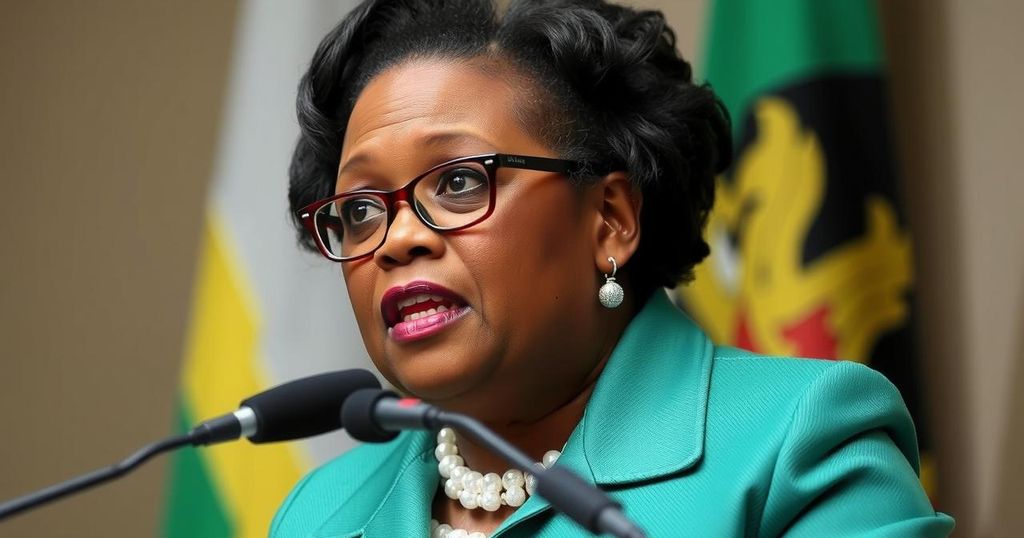Trinidad PM Defends State of Emergency Amid Rising Crime

Trinidad and Tobago Prime Minister Dr. Keith Rowley has announced a state of emergency to address escalating crime, citing threats from violent criminals. The SOE aims to restore public safety and balance citizens’ rights with security measures. Acting Attorney General Stuart Young reported significant increases in violent crime, emphasizing the necessity of decisive state action without curfews to limit economic disruption. This approach reflects an ongoing struggle against the rising tide of violence in the nation.
On January 2, 2025, Trinidad and Tobago Prime Minister Dr. Keith Rowley addressed the recent decision to impose a state of emergency (SOE) designed to tackle escalating crime and violent incidents in the nation. The SOE was enacted following alarming national security threats, particularly related to reprisal killings and the use of high-powered firearms by criminal elements. Prime Minister Rowley emphasized the need to balance citizens’ fundamental rights with necessary state actions to quell disturbances caused by a minority that engages in violence.
During his New Year’s message, Rowley expressed his aspirations for the citizens of Trinidad and Tobago to embrace 2025 with renewed energy and perspectives on the challenges facing the country. He explained that the SOE aims specifically at criminal factions that are instigating violence, stating, “when murder, home invasion, kidnappings, and extortion become the choice of commercial activity,” it necessitates decisive state intervention.
Acting Attorney General Stuart Young affirmed that the SOE declaration was grounded in intelligence from the Trinidad and Tobago Police Service. He noted a significant increase in violent crime, with a record of 61 murders in December alone, bringing the annual total to 623, surpassing previous years’ figures. Notably, the SOE will not implement curfews or hinder citizens’ movements to mitigate economic repercussions. Young also highlighted that police powers for searches and arrests without warrants may be extended under judicial oversight.
Minister of National Security Fitzgerald Hinds described the rise in violent crime as an epidemic affecting the country’s 1.4 million people. Following troubling incidents of violence, including a shooting in Laventille, the government reiterated its stand against growing criminal activity, paralleling a prior SOE declared in 2011 that focused on specific crime hotspots.
This recent action by the Trinidad and Tobago government reflects its critical stance towards ensuring public safety and maintaining order amid troubling trends in violent crime.
In Trinidad and Tobago, escalating crime rates have led to heightened governmental interventions aimed at restoring public safety. The imposition of a state of emergency has become a recurring strategy for addressing severe violence, particularly in a context of gun violence and gang-related activities. Previous emergency declarations have often targeted specific areas deemed hotspots for criminal activity, reflecting a reactive approach to maintaining law and order. As the government grapples with ongoing violence, the balance between civil liberties and security has emerged as a focal point in political discourse, as exemplified by this recent emergency declaration.
In summary, the Trinidad and Tobago government, led by Prime Minister Dr. Keith Rowley, has deemed a state of emergency essential to tackling alarming crime rates and achieving a safer environment for citizens. This decisive action underscores the government’s commitment to maintaining law and order while highlighting the challenges of balancing individual rights against public safety concerns. With crime statistics indicating stark increases in violent incidents, the administration is focusing on restoring peace through strategic law enforcement measures.
Original Source: www.jamaicaobserver.com







